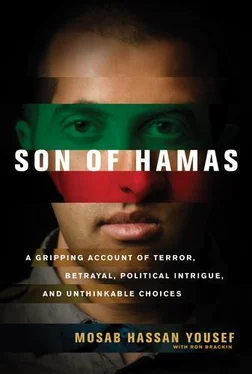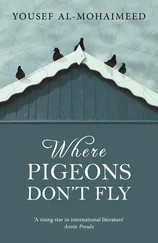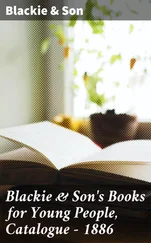When I came back inside, my sister Tasneem was asleep on the couch. The tears were still wet on her cheeks. My mother tried to busy herself in the kitchen, but as the hours dragged on, she became more and more agitated and upset.
The next day, we went to the Red Cross to see if we could get any information about my father’s disappearance. The man at the desk told us that he had definitely been arrested but that the IDF would not give the Red Cross any information for at least eighteen days.
We went back home to count off the two and a half weeks of waiting. During all that time, we heard nothing. When the eighteen days were up, I went back to the Red Cross to see what they had learned. I was told they had no new information.
“But you said eighteen days!” I said, struggling to fight back the tears. “Just tell me where my father is.”
“Son, go home,” the man said. “You can come back next week.”
I did go back, again and again for forty days, and each time I received the same answer: “There is no new information. Come back next week.” This was very unusual. Most of the time, families of Palestinian prisoners learned where their loved one was being held within a couple of weeks of detention.
When any prisoner was released, we made a point of asking him if he had seen my father. They all knew he had been arrested, but no one knew anything else. Even his lawyer knew nothing because he was not allowed to visit him.
We learned only later that he had been taken to Maskobiyeh, an Israeli interrogation center, where he was tortured and questioned. The Shin Bet, Israel’s internal security service, knew my father was at the top level of Hamas and assumed that he knew everything that went on or was planned. And they were determined to get it out of him.
It wasn’t until many years later that he told me what really happened. For days, he was handcuffed and hung from the ceiling. They used electric shock on him until he passed out. They put him in with collaborators, known as “birds,” hoping he would talk to them. When that failed, they beat him some more. But my father was strong. He remained silent, never giving the Israelis any information that could hurt Hamas or his Palestinian brothers.
Chapter Five
SURVIVAL
1989–1990
The Israelis thought if they captured one of the leaders of Hamas, things would get better. But during the time my father was in prison, the intifada only became more violent. In late 1989, Amer Abu Sarhan of Ramallah had seen all the Palestinian deaths he could take. Since no one had guns, he grabbed a kitchen knife and stabbed three Israelis to death, in effect launching a revolution. This incident marked the start of a significant escalation of violence.
Sarhan became a hero to the Palestinians who had lost friends or family members, whose land had been seized, or who had any other reason to want revenge. They were not terrorists by nature. They were just people who had run out of hope and options. Their backs were to the wall. They had nothing left and nothing to lose. They cared nothing for the world’s opinion or even their own lives.
For us kids in those days, going to school became a real problem. It was not uncommon for me to walk out of school to find Israeli jeeps driving up and down the streets, announcing an immediate curfew through loudspeakers. Israeli soldiers took curfews very seriously. These were not like curfews in American cities, where authorities call a teenager’s parents if he’s caught driving around after 11 p.m. In Palestine, if a curfew had been declared and you were on the street for any reason, you were shot. No warning, no arrest. They just shot you.
The first time a curfew was called while I was at school, I didn’t know what to do. I had a four-mile walk ahead of me and knew there was no way I could make it home before curfew. The streets were already empty, and I was scared. I couldn’t stay where I was, and even though I was just a kid trying to get home from school, if the soldiers saw me, I knew they would shoot me. A lot of Palestinian kids got shot.
I began to dodge from house to house, creeping through backyards and hiding in bushes along the way. I tried to avoid barking dogs and men with machine guns as best I could, and when I finally turned the corner onto our street, I was so thankful to see that my brothers and sisters had already made it home safely.
But curfews were just one change we dealt with as a result of the intifada. On many occasions, a masked man would show up at school and tell everybody that a strike had been called and to go home. The strikes, called by one of the Palestinian factions, were designed to hurt Israel financially by reducing the sales tax revenue the government collected from store owners. If the stores were not open, the owners would have to pay less tax. But the Israelis were not stupid. They just started arresting shopkeepers for tax evasion. So who was hurt by the strikes?
On top of that, the various resistance organizations were incessantly fighting with one another for power and prestige. They were like kids scrapping over a soccer ball. Nevertheless, Hamas was steadily growing in power and had begun to challenge the dominance of the Palestine Liberation Organization (PLO).
* * *
The PLO had been founded in 1964 to represent the Palestinian people; its three largest member organizations include: Fatah, a left-wing nationalist group; the Popular Front for the Liberation of Palestine (PFLP), a communist group; and the Democratic Front for the Liberation of Palestine (DFLP), also communist in ideology.
The PLO demanded that Israel return all of the land that had belonged to the Palestinian territories prior to 1948 and grant Palestine the right to self-determination. To this end, it fought a global campaign of public relations, guerrilla warfare, and terrorism from its base, first in neighboring Jordan, then in Lebanon and Tunisia.
Unlike Hamas and Islamic Jihad, the PLO was never an inherently Islamic organization. Its groups were made up of nationalists, not all of them practicing Muslims. In fact, many of them did not believe in God. Even as a young boy, I saw the PLO as corrupt and self-serving. Its leaders sent people, many of whom were just teenagers, to carry out one or two high-profile terrorist attacks a year in order to justify fund-raising for the struggle against Israel. The young feda’iyeen were little more than fuel to stoke the fires of anger and hatred and to keep the donations flowing into the personal bank accounts of PLO leaders. [2]
In the initial years of the First Intifada, ideological differences kept Hamas and the PLO on very separate paths. Hamas was largely animated by religious fervor and the theology of jihad, while the PLO was driven by nationalism and the ideology of power. If Hamas called a strike and threatened to burn the stores of anyone who stayed open, PLO leaders across the street threatened to burn the stores of anyone who closed.
What the two groups shared, however, was a deep hatred for what they labeled “the Zionist entity.” Finally, the two organizations agreed that Hamas would have its strike on the ninth of every month, and Fatah—the PLO’s largest faction—would have its strike on the first. Whenever a strike was called, everything stopped. Classes, commerce, cars—everything. Nobody worked, earned, or learned.
The whole West Bank was shut down, with masked men demonstrating, burning tires, writing graffiti on walls, and shutting down businesses. But anyone could put on a ski mask and say they were PLO. No one ever really knew who was under the masks; everybody was simply driven by individual agendas and personal vendettas. Chaos reigned.
And Israel took advantage of the confusion. Since anyone could be an intifada fighter, Israeli security troops put on masks and infiltrated the demonstrations. They could walk into any Palestinian city in the middle of the day and pull off amazing operations dressed as masked feda’iyeen. And since no one could be certain who any particular masked man was, people did what they were told rather than risk a beating, having their business burned, or being called an Israeli collaborator, which often resulted in a hanging.
Читать дальше












